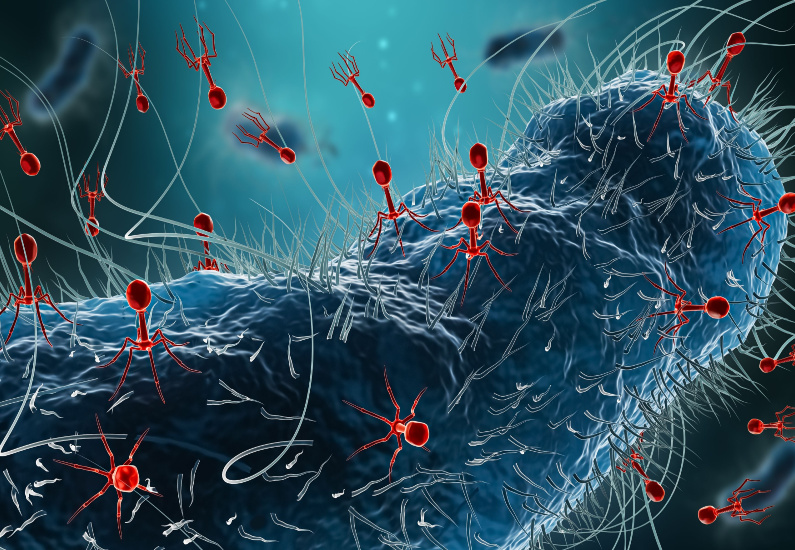Viruses are ubiquitous infectious agents that apply creative strategies to maneuver and infect their host cells. Deciphering the molecular mechanisms of viral infection, host protective anti-viral mechanisms, and the physiological impact on the human host may enable to uncover new anti-viral treatments. Besides, understanding the constant ‘arms race’ between bacteria and their natural enemies, the anti-bacterial viruses termed bacteriophages, may allow to harness phages as anti-bacterial treatments to combat antibiotic resistance.

Viruses are increasingly realized to constitute major threats to humans, by contributing to a variety of infectious, auto-immune and other multi-factorial human disorders. Mechanistically deciphering virus-host interactions is considered vital to disease prevention and human health. WIS groups are actively engaged in studying a variety of viral pathogens, ranging from HIV, CMV, EBV and Zika Virus in understanding their mechanisms of human invasion, evasion of our immune system and tissue colonization and damage. WIS groups also study bacteriophages, which are viruses that specifically infect bacteria by injecting their nucleic acid into their bacterial host. Such exploratory research is already leading to the identification of bacteria-mediated anti-virals, phage-mediated anti-bacterial systems, and the notion of phage therapy. Such research may also lead to the discovery of novel genomic editing tools, utilized by the bacterial and viral adversaries in their constant arms race.

